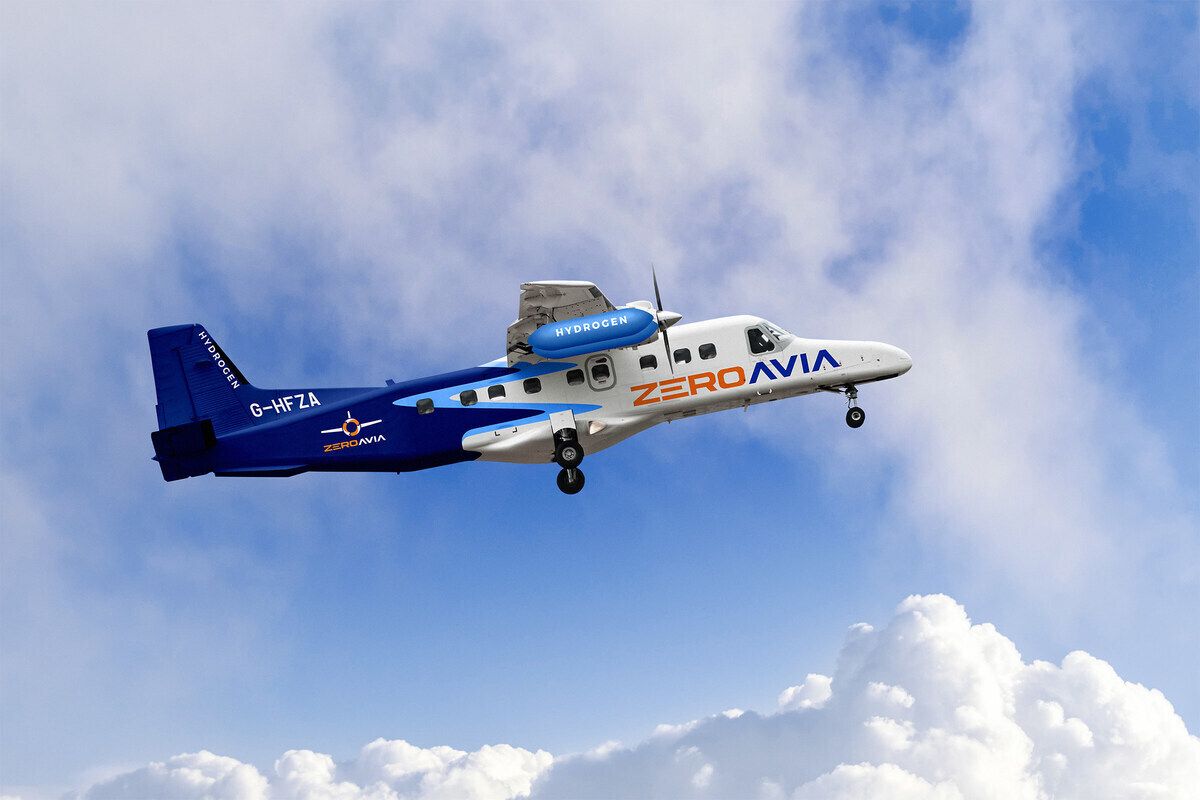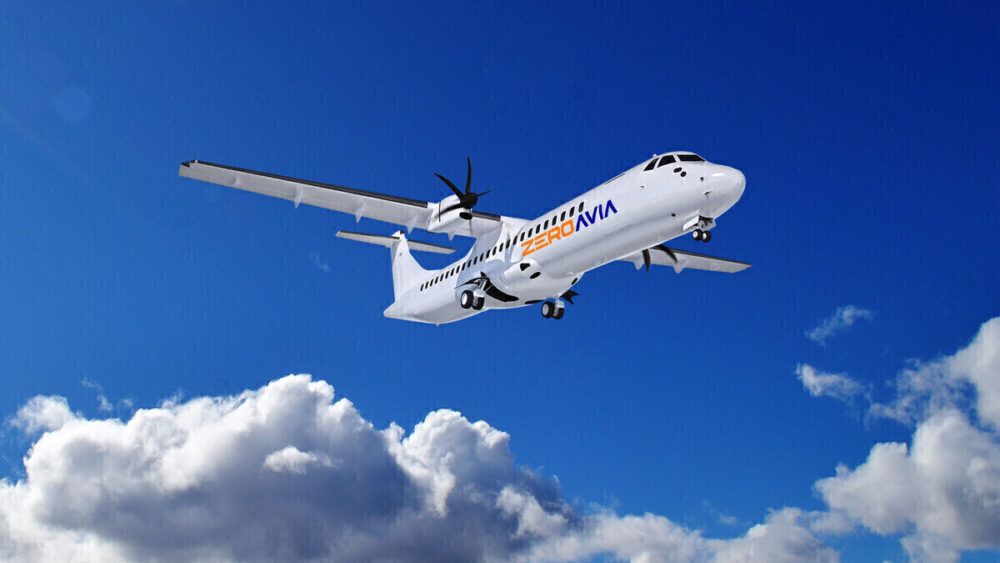ZeroAvia has been making strong strides in hydrogen-electric aviation in recent months. Following a series of impressive steps, the British/American company announced this week that it is expanding its program to 19-seat aircraft. Additionally, the firm has raised an additional $13 million to develop larger engines for 50+ seat aircraft.
An impressive four years
The business was founded in 2017 and following growth with testing, it is already looking at the development of 50-seater aircraft. It has also been planning 10-20 seat commercial vessels and even has its sights on 100-seat zero-emission units by the time the 2030s arrive.
Now, the company has secured a pair of twin-engine Dornier 228s to help it on its mission. It is ramping up its presence in the United Kingdom with this move as the 19-seat program will be based at a new facility in Kemble, with support from Hollister, California. Interestingly, the firm previously moved facilities to Cranfield, from the US.
Reducing emissions
Two 600 kilowatt units of ZeroAvia’s hydrogen-electric powertrain will replace the Dornier 228 engines. Combining with hydrogen fuel tanks, the aircraft will hold 100 kilograms of compressed gaseous hydrogen to provide 500-mile flight by 2024.
"We are eager and ready to begin testing our hydrogen-electric powertrain technology on a larger commercial-size aircraft and grateful to our investors and grant funders for their continued support of our vision for sustainable aviation," ZeroAvia founder and CEO Val Miftakhov shares in a statement.
"Various projections indicate that aviation may account for over 25 percent of human-induced climate effects by 2050. We are on the path to helping reverse that trend, first with our successful 6-seater testing and now with the R&D for our 19-seater, and the kick-off of our 50+ seat program. Hydrogen is the only practical solution for true climate-neutral flight, and it will become a commercial reality much sooner than many predict."
Wider efforts
ZeroAvia has been making considerable progress in the field of hydrogen fuel cell technology in recent times. Last September, its six-seat Piper Malibu Mirage performed the first-ever flight with zero-emission fuel for a "commercial-grade" passenger plane. However, the aircraft was damaged when landing in Bedfordshire in April.
Stay informed: Sign up for our daily and weekly aviation news digests.
Nonetheless, this event won't deter the company as it partners with the likes of British Airways to bring a new generation of hydrogen-electric powered vehicles. Notably, the flag carrier of the UK is part of a group that made a $24.3 million investment into the firm.
The UK is showing its intent on being a forerunner in electric aviation. Notably, the government has launched several initiatives when it comes to sustainable air travel. For example, in 2019, it revealed a £300 million (~$416 million) investment to develop greener air transport. Moreover, it has backed projects such as the ATI Programme, which is involved with exciting launches like Collins Aerospace's 500-kilowatt electric motor powering the Airlander 10 Hybrid Airship
What are your thoughts about ZeroAvia’s progress in hydrogen-electric technology? What do you make of the overall prospects in this field across the globe? Let us know what you think of the plans in the comment section.


